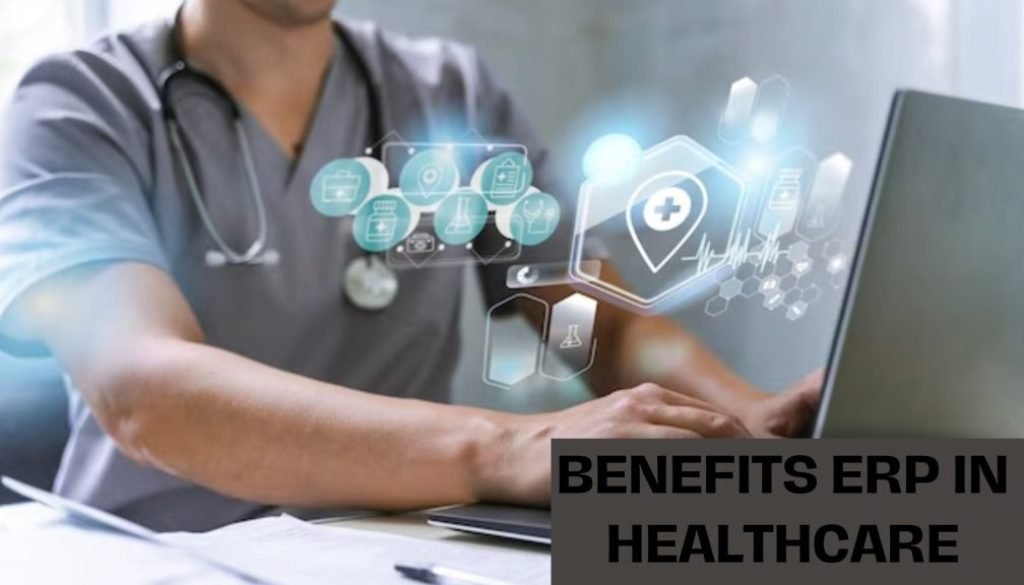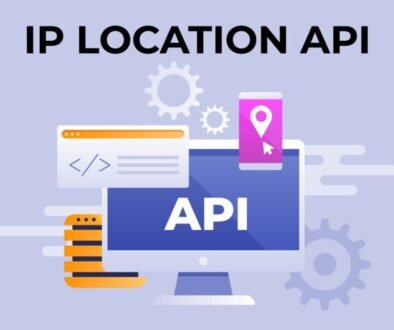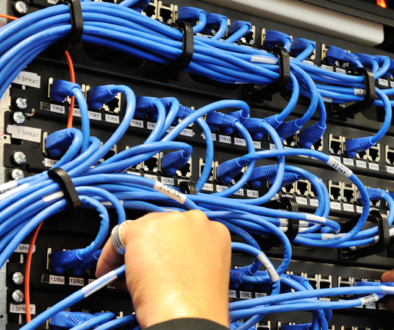The Revolutionary Benefits of ERP Systems in Healthcare
In an era where technology is rapidly reshaping the landscape of various industries, healthcare is no exception. The integration of Enterprise Resource Planning (ERP) systems has proven to be a game-changer for healthcare organizations worldwide. ERP systems, designed to streamline and optimize business processes, have demonstrated significant benefits when applied to the complex and dynamic healthcare environment.
In this blog, we will explore the manifold advantages of implementing ERP in healthcare, from enhanced operational efficiency to improved patient care and regulatory compliance.
I. Streamlined Operations
One of the primary benefits of ERP in healthcare is the streamlining of operations across various departments. Traditional healthcare systems often involve multiple standalone applications that do not communicate effectively with each other, leading to siloed data and inefficient processes. ERP systems break down these silos by integrating diverse functions such as finance, human resources, supply chain, and patient management into a unified platform.
By consolidating information and automating routine tasks, healthcare organizations can significantly improve their operational efficiency. For example, ERP systems can automate billing processes, reducing the likelihood of errors and accelerating revenue cycles. This streamlined approach not only saves time and resources but also allows healthcare professionals to focus more on patient care.
II. Enhanced Data Management and Accuracy
In healthcare, accurate and timely information is crucial for providing high-quality patient care. ERP systems play a pivotal role in improving data management by centralizing information and ensuring data accuracy and consistency across the organization. This centralized data repository facilitates real-time access to patient records, medical histories, and treatment plans, enabling healthcare providers to make well-informed decisions quickly.
Moreover, ERP systems contribute to the reduction of data entry errors and duplications. With integrated modules, healthcare professionals can enter data once, and it is automatically updated across all relevant departments. This not only improves the accuracy of patient information but also minimizes the risk of errors associated with manual data entry.
III. Improved Patient Care
The ultimate goal of any healthcare system is to deliver superior patient care. ERP systems play a crucial role in achieving this goal by providing healthcare professionals with the tools and information they need to make informed decisions. Through centralized data access, healthcare providers can quickly retrieve patient records, track treatment plans, and collaborate seamlessly with other departments.
Additionally, ERP systems enable better inventory management of medical supplies and medications, ensuring that healthcare facilities have the necessary resources to deliver timely and effective care. This proactive approach to resource management contributes to a more patient-centric healthcare environment.
IV. Cost Efficiency and Financial Management
Cost efficiency is a paramount concern for healthcare organizations, and ERP systems offer robust solutions to manage financial processes effectively. These systems provide accurate and real-time financial data, allowing organizations to make informed budgetary decisions. From payroll management to procurement and invoicing, ERP systems automate financial processes, reducing the likelihood of errors and optimizing resource allocation.
Moreover, ERP systems contribute to cost savings by identifying inefficiencies and areas for improvement. By analyzing data trends, healthcare organizations can make strategic decisions to enhance operational performance and allocate resources more effectively.
V. Regulatory Compliance and Reporting
The healthcare industry is subject to a myriad of regulations and compliance standards. Non-compliance can result in severe consequences, including legal actions and financial penalties. ERP systems are designed to assist healthcare organizations in meeting these regulatory requirements by providing tools for documentation, reporting, and audit trails.
Through integrated compliance modules, ERP systems help healthcare organizations stay up-to-date with evolving regulations. Automated reporting features ensure that necessary documentation is readily available, simplifying the auditing process and reducing the risk of compliance violations.
VI. Enhanced Communication and Collaboration
Effective communication and collaboration are critical for delivering optimal healthcare outcomes. ERP systems promote seamless communication by breaking down silos between different departments and enabling real-time information sharing. Healthcare professionals can access patient data, test results, and treatment plans from any location, fostering collaboration and ensuring continuity of care.
Additionally, ERP systems facilitate communication between healthcare providers and patients. Patient portals and communication modules enable secure messaging, appointment scheduling, and access to medical records, enhancing the overall patient experience.
VII. Scalability and Adaptability
The healthcare landscape is constantly evolving, with technological advancements and changes in patient demographics requiring organizations to adapt swiftly. ERP systems provide the scalability and adaptability necessary to meet the evolving needs of healthcare organizations.
Whether expanding services, integrating new medical technologies, or adapting to changes in regulatory requirements, ERP systems offer the flexibility to accommodate growth and change. This adaptability is particularly crucial in an era where healthcare organizations need to stay agile to address emerging challenges and opportunities.
Conclusion
The integration of ERP systems in healthcare represents a paradigm shift towards operational efficiency, streamlined processes, and improved patient care. The manifold benefits discussed in this blog underscore the transformative impact of ERP systems on the healthcare industry. As organizations continue to prioritize technological advancements to meet the demands of a dynamic healthcare landscape, the hire front-end developers with expertise in ERP implementation will play a pivotal role.
The successful deployment and ongoing optimization of ERP systems require skilled professionals who understand both the intricacies of healthcare operations and the nuances of front-end development. By Considering to hire front-end developers with a focus on ERP integration, healthcare organizations can ensure a seamless transition, efficient utilization of resources, and a sustained commitment to delivering high-quality patient-centric care.



